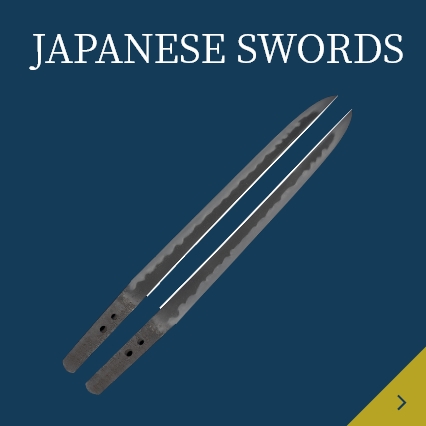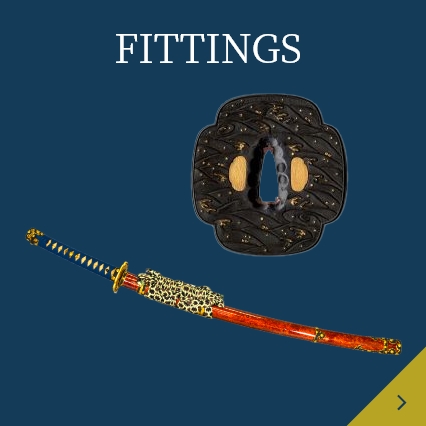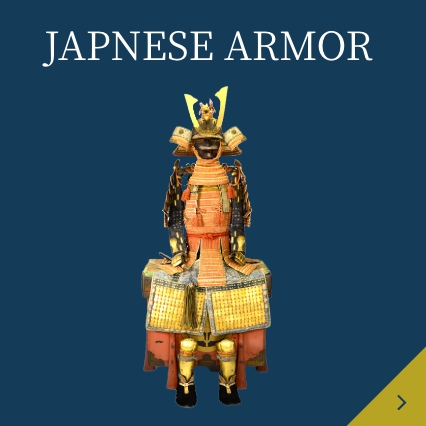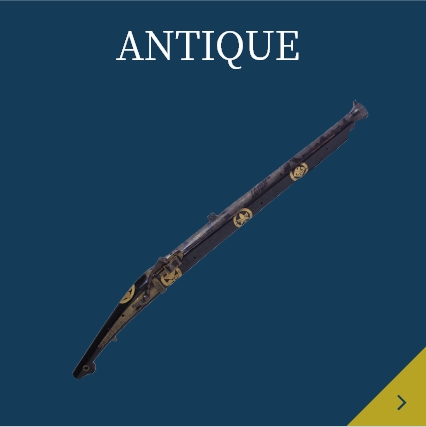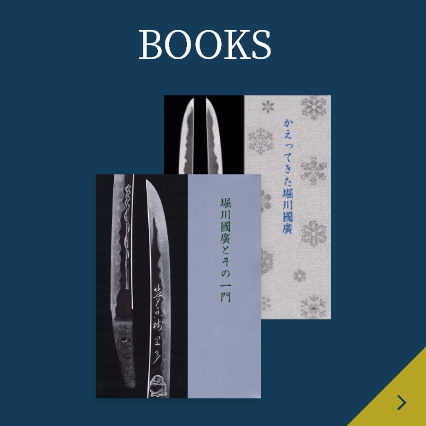ギャラリー
(Katana)Aoe
刀 無銘 伝青江
| Item NO. | NO.K00193 | Price | Reference sample |
|---|---|---|---|
| Paper | NBTHK Tokubetsu Hozon Paper (公財)日本美術刀剣保存協会 特別保存刀剣鑑定書 | ||
| Country | Bitchū koku(備中国) | ||
| Period | Nanbokucho period(南北朝時代),14th~16th century | ||
| Blade Length | 68.8cm (2尺2寸7分)| 25 1/8in | ||
| Curve(Sori) | 1.4cm| 35/64in | ||
| Top Width (Sakihaba) | 2.55cm|1in | ||
| Bottom Width (Motohaba) | 3.0cm|1 3/16in | ||
| Bottom Thickness (Motokasane) | 0.6cm|15/64in | ||
| Keijo | Shinogi-dzukuri, iori_mune, mihaba jinjō, sun nobite, sakizori asaku tsuki, ōkissaki. | ||
| Kitae | Masamehada ni moku majie,-chi nie yoku tsuki, awaku utsuri tatsu. | ||
| Hamon | Notare-chō ni kogunome kochōji majiete midare, nioi-gachi konie-tsuki, tobiyaki sunagashi kakaru. | ||
| Boushi | Midare-komi Komaru ni kaeru. | ||
| Nakago | Ōsuriage,saki wazukani ni ha agari kurijiri, yasurime ōsuji kae, Hole 2. | ||
| Accessories | Shirasaya(白鞘)(Kanzan-sayagaki)(薫山先生鞘書有)・Kiniro-ichiJū-habaki(金色一重ハバキ) | ||
| Details | The Chugoku region has been known as a production area of high-quality iron since ancient times, and the swordsmiths of the Aoe school produced swords in the provinces of Zhii and Manju, and within the same school, swords from the late Heian period to the middle of the Kamakura period were produced in the old Aoe school. It is collectively called. The Koaoe school(古青江派) has Yasuji as its founder, and has produced many other master blacksmiths such as sadatsugu(貞次), tsunetsugu(恒次), and tsuguie(次家), who are famous as Gotobain -bankaji, as well as moritoshi(守利), suketsugu(助次), nobetsugu(延次), kanetsugu(包次), and yasutsugu(康次). The style of this work was achieved by moritsugu(守次), tsuguyoshi(次吉), tsugunao(次直) and others during the peak of the Nanbokucho period. 中国地方は古来より良質な鉄の産地として知られ、青江派の刀工は同国の子位や万寿の地で作刀し、同派の中で平安時代後期から鎌倉時代中期までのものを古青江と総称しています。古青江派は安次を祖として、後鳥羽院番鍛冶として名高い貞次・恒次・次家がおり、他に守利・助次・延次・包次・康次など多くの名工を輩出しています。本作のような作風は南北朝最盛期の守次・次吉・次直らにより大成されている。 |
||
| Accessories | Shirasaya(白鞘)(Kanzan-sayagaki)(薫山先生鞘書有)・Kiniro-ichiJū-habaki(金色一重ハバキ) | ||


SEARCH
-
PERIOD LISTS
Koto|Shinto|Shinshinto|GendaitoPRICE LISTS
~¥500,000 JPY|¥510,000 JPY~¥1,000,000 JPY|¥1,010,000 JPY~¥2,000,000 JPY|¥2,010,000 JPY~¥3,000,000 JPY| ¥3,010,000 JPY~¥4,000,000 JPY|¥4,010,000 JPY~¥5,000,000 JPY|¥5,010,000 JPY~¥10,000,000 JPY|¥10,010,000 JPY~ |Please contact us -
PAPER LISTS
Important art appraisal|Others|No appraisalJpanese Swords
NBTHK Tokubetsu Jyuyo|NBTHK Jyuyo|NBTHK Tokubetsu Hozon|NBTHK HozonFittings
NBTHK Tokubetsu Jyuyo|NBTHK Jyuyo|NBTHK Tokubetsu Hozon|NBTHK Hozon


